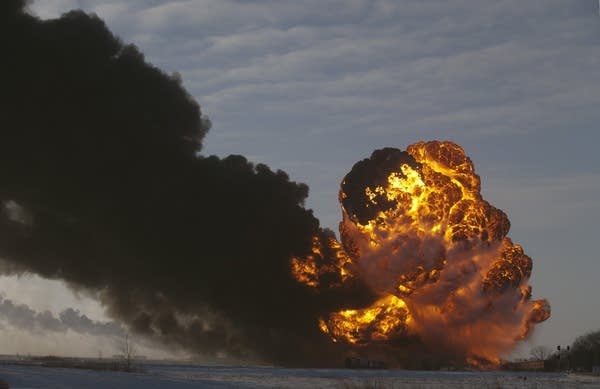Mayor: Casselton narrowly escaped tragedy after train derailment, explosion

A fireball goes up at the site of an oil train derailment Monday, Dec 30, 2013, in Casselton, N.D. The train carrying crude oil derailed near Casselton Monday afternoon. Several explosions were reported as some cars on the mile-long train caught fire.
Bruce Crummy/AP
Go Deeper.
Create an account or log in to save stories.
Like this?
Thanks for liking this story! We have added it to a list of your favorite stories.


